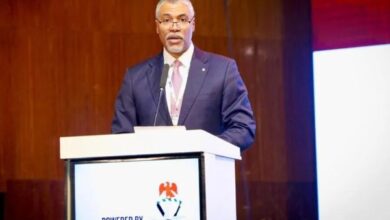
In a landmark move poised to redefine Nigeria’s fiscal architecture, President Bola Ahmed Tinubu on Thursday signed into law four transformative tax reform bills aimed at driving efficiency, equity, and economic renewal across the federation.
At a brief but symbolically loaded signing ceremony held at the State House, Abuja, and witnessed by key figures from the National Assembly including Senate President Godswill Akpabio and House Speaker Tajudeen Abbas, President Tinubu declared that Nigeria was “turning a decisive corner” in its economic governance journey.
The newly enacted bills — Nigeria Tax Bill (Fair Taxation), Tax Administration Bill, Revenue Service (Establishment) Bill, and Joint Revenue Board (Establishment) Bill — form the legal backbone of a broader fiscal transformation agenda initiated under Tinubu’s administration and anchored by the Presidential Committee on Fiscal Policy and Tax Reforms led by Taiwo Oyedele.
A Bold Policy Reset: From Fragmentation to Integration
Describing the reforms as “a revolution in the making,” Tinubu stated that the new tax laws are structured to do more than patch up administrative loopholes — they aim to unify Nigeria’s notoriously fragmented tax system, eliminate duplicative functions across federal, state, and local revenue bodies, and set the stage for a harmonized, transparent, and pro-investment tax regime.
“This is more than tax reform — it’s a governance reset,” said Tinubu. “For decades, ordinary Nigerians and small businesses have borne the brunt of inefficiencies and multiplicity of levies. Today, we begin the journey of making taxation fairer, simpler, and growth-oriented.”
Among the most significant changes are targeted tax reliefs for low-income earners, SMEs, and struggling households, thereby reinforcing the government’s pro-poor economic philosophy. The laws also aim to boost investor confidence, streamline collection mechanisms, and enhance inter-agency coordination, a longstanding sore point in Nigeria’s fiscal administration.
NECA, OPS Hail Reforms But Urge Vigilant Implementation
Reacting swiftly to the development, the Nigeria Employers’ Consultative Association (NECA) commended the signing as a “major stride in correcting structural tax inefficiencies,” but also warned that implementation will be the real test.
“I’m elated,” said NECA Director-General, Adewale-Smatt Oyerinde, speaking at the 4th Nigeria Employers Summit in Abuja. “For over a decade, the Organised Private Sector has battled with overlapping taxes, arbitrary levies, and inconsistent policies. These new laws — if implemented faithfully — could reset the entire economic climate for job creation and enterprise growth.”
NECA, a key stakeholder in the reform process, worked closely with the presidential committee to shape the draft bills, and has pledged to deepen its engagement with the Federal Inland Revenue Service (FIRS) and other relevant agencies to support smooth execution.
However, Oyerinde cautioned that passing laws is only half the battle. “The complexities of aligning federal, state, and local tax actors into one coherent framework will demand relentless coordination, political will, and digital infrastructure.”
Private Sector Seeks Policy-Action Symmetry
At the Summit themed “Enabling Sustainable Enterprise in a Transitioning Economy: Aligning Fiscal, Trade and Regulatory Reforms for Rapid Development”, NECA President Dr. Ifeanyi Okoye called for policy consistency and regulatory predictability as prerequisites for inclusive economic growth.
Dr. Okoye said that beyond tax reform, fiscal alignment with trade and labour policies is essential to foster a conducive environment for private investment and productivity.
In his remarks, Minister of Labour and Employment, Muhammadu Dingyadi, acknowledged NECA’s pivotal role in fostering public-private collaboration, describing the summit as a platform to forge actionable consensus, not just policy debate.
Minister of Interior, Olubunmi Tunji-Ojo, also lent his voice, citing ongoing collaborations with NECA in labour mobility and workplace reforms. He stressed the importance of the private sector in “translating policy into productivity.”
BRANDECONOMY INSIGHT: WHAT THIS MEANS FOR BUSINESSES
With these four bills now signed into law, Nigeria is entering what experts describe as a new fiscal order — one that could potentially lower the cost of doing business, reduce policy friction, and expand the formal tax net through smarter enforcement rather than punitive levies.
Key expectations from the laws include:
- Centralised taxpayer registry to prevent multiple taxation.
- Digitally enabled tax administration with reduced human interface.
- Increased tax-to-GDP ratio via voluntary compliance rather than coercion.
- A clearer delineation of fiscal responsibilities between federal and subnational entities.
For business owners, accountants, investors, and tax professionals, this is a crucial inflection point. The time to understand, adapt, and engage with Nigeria’s emerging tax framework is now.











